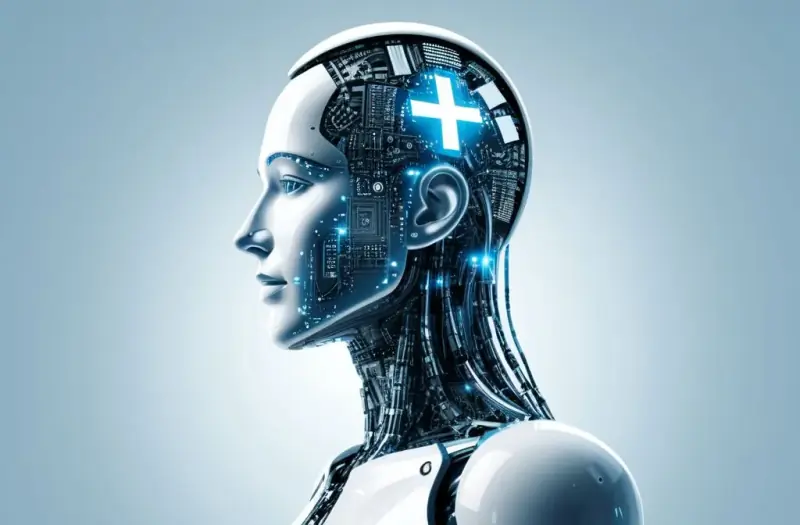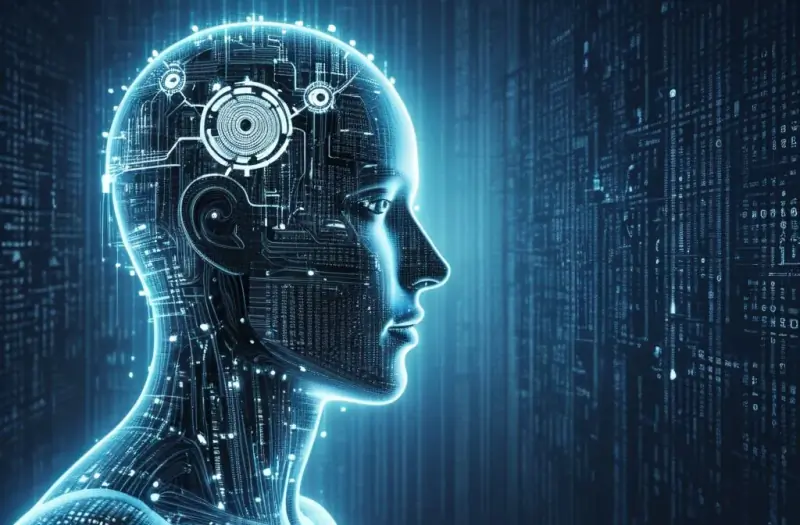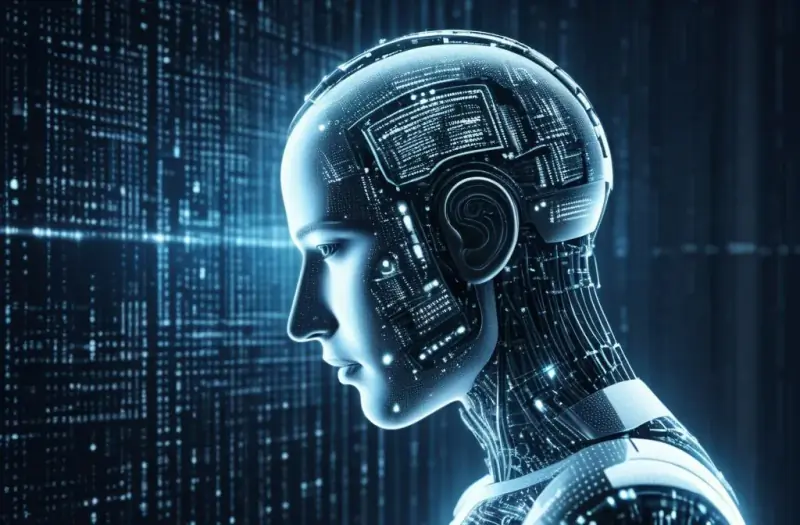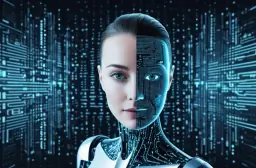AI & Human Rights: Ethical Considerations

Table of Contents
Introduction
As we venture further into the digital age, the integration of artificial intelligence (AI) into various facets of our lives presents both opportunities and challenges. One of the most pressing concerns is the intersection of AI and human rights, a topic that demands our attention. In this article, we explore the ethical dilemmas posed by AI technologies and their implications for human rights, focusing on the need for ethical AI and robust AI governance.
The rapid development of AI has outpaced the creation of legal and ethical frameworks to regulate its use. As a result, we must consider how AI and privacy rights, AI fairness, and AI accountability are addressed to ensure that technology serves humanity rather than undermines it.
The Intersection of AI and Human Rights

Artificial intelligence has the potential to transform society for the better, but it also raises significant concerns about human rights in technology. The ability of AI to process vast amounts of data, make decisions, and even predict human behavior can lead to both beneficial and harmful outcomes.
The Promise and Peril of AI
On the one hand, AI can enhance our ability to protect human rights by identifying and addressing issues such as discrimination, bias, and inequality. For instance, AI-driven analysis can reveal patterns of discrimination that may not be immediately apparent, leading to more effective interventions.
However, the same technologies can be used to infringe on rights. AI and civil liberties are at risk when AI is employed in surveillance systems that can track individuals without their knowledge or consent. The balance between AI regulation and innovation is crucial to ensure that AI technologies do not become tools of oppression.
AI and Privacy Rights
One of the most critical areas where AI ethics intersects with human rights is in the realm of AI and privacy rights. AI systems often rely on massive datasets that include personal information, raising concerns about how this data is collected, stored, and used. The potential for misuse is significant, particularly when data is used without consent or for purposes beyond its original intent.
To protect privacy, it is essential to implement AI transparency and AI-driven rights protection measures. This includes ensuring that individuals are informed about how their data is being used and have the ability to control and manage their personal information.
Ethical AI: A Human-Centric Approach
The concept of ethical AI is rooted in the belief that AI systems should be designed and deployed in a way that prioritizes human dignity, fairness, and justice. AI bias and discrimination are major concerns, as AI systems can inadvertently reinforce existing social inequalities if not properly managed.
Addressing AI Bias and Discrimination
AI systems are only as good as the data they are trained on. If the training data contains biases, the AI will likely perpetuate these biases in its decision-making processes. This can have serious consequences, particularly in areas such as hiring, law enforcement, and lending, where biased AI decisions can lead to unequal treatment.
To combat AI bias, we must prioritize responsible AI practices that include rigorous testing, diverse training datasets, and continuous monitoring for biased outcomes. Additionally, the development of AI and legal frameworks that explicitly address discrimination and bias is essential to ensure that AI systems uphold the principles of fairness and equality.
AI and Social Justice
The integration of AI into society also raises questions about AI and social justice. While AI has the potential to improve access to services and resources, it can also exacerbate existing inequalities if not implemented thoughtfully. AI policy must consider the broader social impacts of AI technologies, ensuring that they contribute to rather than detract from social justice goals.
AI transparency and AI accountability are key components of a human-centric approach to AI. By making AI systems more transparent and holding developers and users accountable for their actions, we can create a more just and equitable society.
AI Governance: The Role of Regulation

Effective AI governance is critical to navigating the ethical challenges posed by AI. Without clear guidelines and regulations, the potential for abuse is high. AI regulation must be designed to protect human rights while still allowing for innovation and technological advancement.
The Need for Comprehensive AI Regulation
The current regulatory landscape for AI is fragmented, with different countries and regions adopting varying approaches to AI and human rights. To create a consistent and effective framework, international cooperation is necessary. This includes the development of global standards for AI ethics and AI accountability that can be applied across borders.
AI and civil liberties must also be a focus of regulatory efforts. This includes ensuring that AI technologies do not infringe on basic rights such as freedom of expression, privacy, and the right to fair treatment.
The Role of AI in Protecting Human Rights
AI can also play a positive role in protecting human rights. For example, AI-driven tools can be used to monitor and report human rights abuses, providing real-time data that can be used to hold perpetrators accountable. Additionally, AI can help identify and address systemic issues that contribute to human rights violations, such as poverty and discrimination.
By leveraging AI in these ways, we can create a more just and equitable world. However, this requires a commitment to AI transparency and AI-driven rights protection, as well as ongoing efforts to address the ethical challenges posed by AI.
FAQs
What are the main ethical concerns related to AI and human rights?
The main ethical concerns include AI bias, AI transparency, AI accountability, and the potential for AI technologies to infringe on privacy rights and civil liberties.
How can AI bias be addressed?
AI bias can be addressed through the use of diverse training datasets, rigorous testing, continuous monitoring, and the development of AI and legal frameworks that explicitly address discrimination and bias.
What role does AI play in protecting human rights?
AI can help protect human rights by identifying and reporting abuses, monitoring systemic issues, and providing data-driven insights that can be used to hold perpetrators accountable.
Why is AI regulation important for human rights?
AI regulation is important to ensure that AI technologies are used ethically and do not infringe on basic human rights such as privacy, freedom of expression, and the right to fair treatment.
What is ethical AI?
Ethical AI refers to AI systems designed and deployed in a way that prioritizes human dignity, fairness, justice, and transparency.
Conclusion
The intersection of AI and human rights presents both challenges and opportunities. As we navigate the ethical dilemmas posed by AI, it is crucial to prioritize AI ethics, AI governance, and responsible AI practices. By addressing AI bias, ensuring AI transparency, and developing comprehensive AI regulation, we can create a future where AI technologies enhance rather than undermine human rights.
Key Takeaways
- Ethical AI is essential to protect human rights and ensure fairness and justice in AI decision-making.
- AI bias and discrimination must be addressed through diverse training datasets, rigorous testing, and continuous monitoring.
- AI regulation is critical to prevent the misuse of AI technologies and protect privacy rights and civil liberties.
- AI has the potential to protect human rights by providing data-driven insights and monitoring systemic issues.
- A human-centric approach to AI prioritizes human dignity, fairness, and social justice in the development and deployment of AI technologies.
Popular Tags
ADS SPACE HERE


